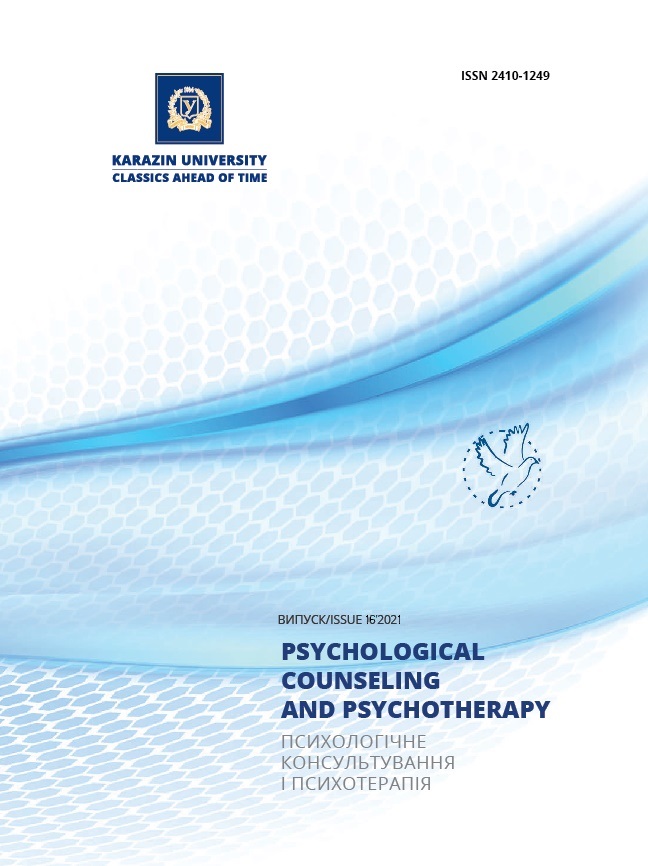Features of Ukrainian Entrepreneurs' Choice of Coping Strategies During the COVID-19 Pandemic
Abstract
The article is devoted to the study of the choice of coping strategies of small and medium-sized entrepreneurs in the conditions of the COVID-19 pandemic. During the pandemic, entrepreneurs faced various types of stress and emotional stress caused by both the risks of losing business and economic crises, as well as negative psychological states of experiencing mass PTSD. The article provides statistics on the state of entrepreneurship before and after the COVID-19 pandemic, as well as analyzes the issues of personal attitude of entrepreneurs to quarantine restrictions and its impact on business. In addition, the article examines the theory of coping behavior by R. Lazarus and S. Folkman, which presents the main interpretations of the concept of "coping" and its basic elements as ways of psychological protection of an individual in conditions of experiencing stressful and difficult life situations. Eight main coping strategies are analyzed, which are necessary for entrepreneurs in the face of threats and business risks caused by economic fluctuations in market conditions due to the introduction of national quarantine measures. The article describes the process of empirical research of the attitude of entrepreneurs to the course and consequences of the COVID-19 pandemic. Also, statistically calculated the coping strategies used, focused on solving problems, emotions or avoidance, characteristic of Ukrainian entrepreneurs in an uncertain economic situation in the state. The article develops and formulates the main recommendations concerning information hygiene, emotional state control, mental relaxation, the introduction of physical activity and long-term planning, which will allow entrepreneurs to maintain emotional stability and prevent PTSD caused by the consequences of the COVID-19 pandemic.
Downloads
References
Aryna, G.A., Mykolaeva, V.V. (2019). Values and fears: the relationship between value preferences and fear of health problems. Clinical Psychology, 8(1). 103–117. (in Ukrainian) https://doi.org/10.17759/psycljn.2019080107
Ahmed, M.Z. Ahmed, O., Aibao, Z., Hanbin, S., Siyu, L., Ahmad, A. (2020). The epidemic of COVID-19 in China and associated psychological problems, Asian J. Psychiatry, 51. Art. 102092. https://doi.org/0.1016/j.ajp.2020.102092
EBA European Business Association, https://eba.com.ua
Hawryluck L., Gold W., Robinson S. , Pogorski S., Galea S., & Styra R. (2004). Сontrol and psychological effects of quarantine, Toronto, Canada Emerg Infect Dis. 10, 1206 12
Ahorsu, D.K., Lin. C.-Y, Imani, V., Saffari, M., Griffiths, M.D. Pakpour, A.H. (2020). The Fear of COVID-19 Scale: Development and Initial Validation. International Journal of Mental Health https://doi.org/10.1007/s11469-020-00270-8
Zlyvkov V.L., Lukomska S.O., O.V. Fedan. (2016). Psychodiagnostics of personality in crisis life situations. Kyiv: Pedagogichna Dumka. (in Ukrainian)
Portal of psychological publications PsyJournals.ru, Perception of COVID - 19 people in the pandemic of 2020, Clinical and special psychology. 2020. 9(2), ()in Ukrainian) https://psyjournals.ru/psyclin/2020/n2/Pervichko_et_al_full.shtml.








